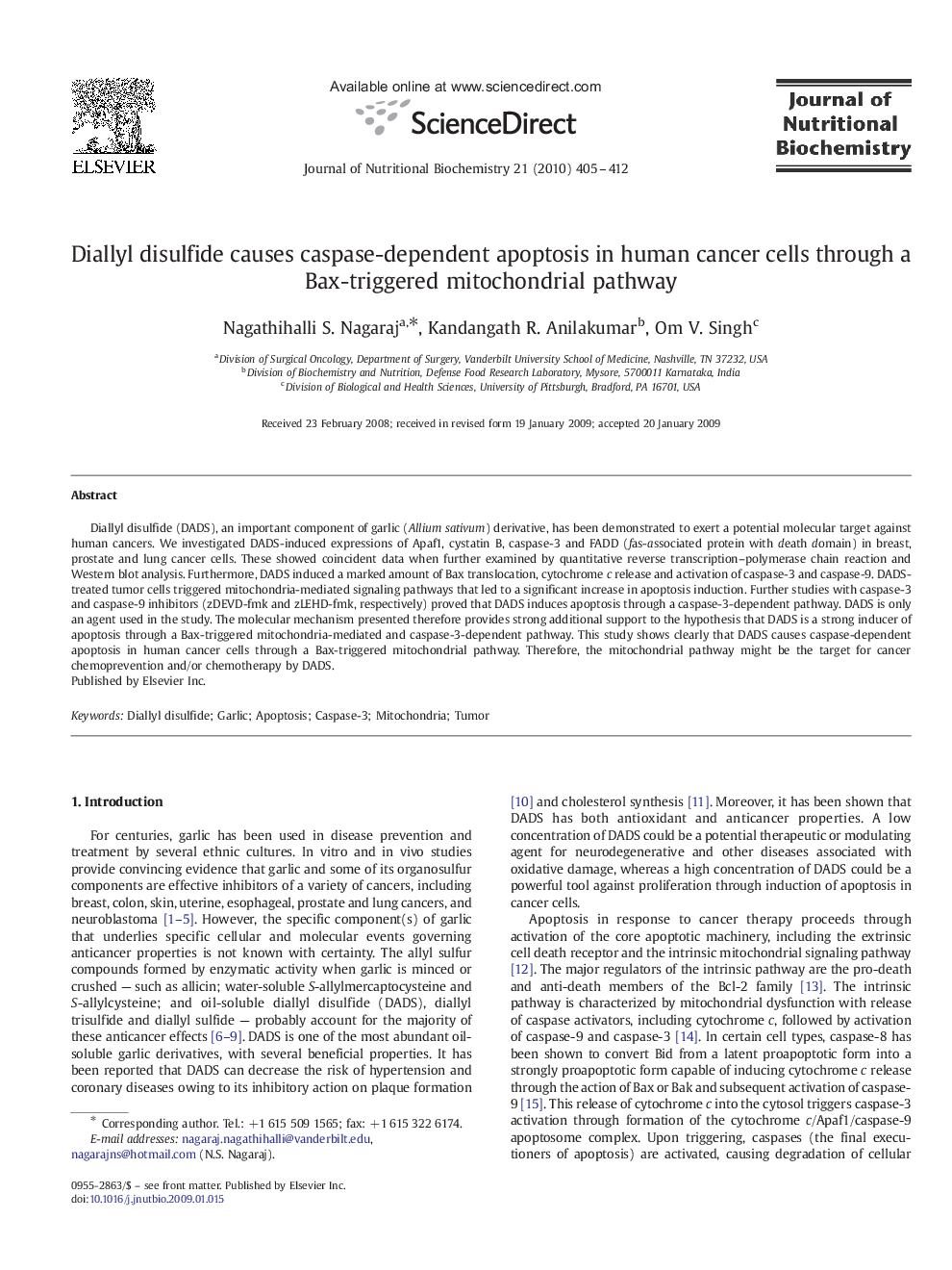| کد مقاله | کد نشریه | سال انتشار | مقاله انگلیسی | نسخه تمام متن |
|---|---|---|---|---|
| 1990220 | 1540709 | 2010 | 8 صفحه PDF | دانلود رایگان |

Diallyl disulfide (DADS), an important component of garlic (Allium sativum) derivative, has been demonstrated to exert a potential molecular target against human cancers. We investigated DADS-induced expressions of Apaf1, cystatin B, caspase-3 and FADD (fas-associated protein with death domain) in breast, prostate and lung cancer cells. These showed coincident data when further examined by quantitative reverse transcription–polymerase chain reaction and Western blot analysis. Furthermore, DADS induced a marked amount of Bax translocation, cytochrome c release and activation of caspase-3 and caspase-9. DADS-treated tumor cells triggered mitochondria-mediated signaling pathways that led to a significant increase in apoptosis induction. Further studies with caspase-3 and caspase-9 inhibitors (zDEVD-fmk and zLEHD-fmk, respectively) proved that DADS induces apoptosis through a caspase-3-dependent pathway. DADS is only an agent used in the study. The molecular mechanism presented therefore provides strong additional support to the hypothesis that DADS is a strong inducer of apoptosis through a Bax-triggered mitochondria-mediated and caspase-3-dependent pathway. This study shows clearly that DADS causes caspase-dependent apoptosis in human cancer cells through a Bax-triggered mitochondrial pathway. Therefore, the mitochondrial pathway might be the target for cancer chemoprevention and/or chemotherapy by DADS.
Journal: The Journal of Nutritional Biochemistry - Volume 21, Issue 5, May 2010, Pages 405–412